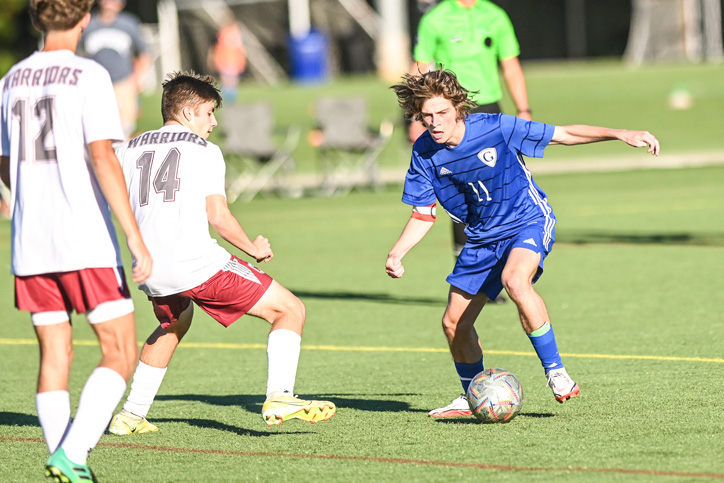Concussions
Information for student-athletes and parents / legal guardians in regards to concussions.
What is a concussion? A concussion is an injury to the brain caused by a direct or indirect blow to the head. It results in your brain not working as it should. It may or may not cause you to black out or pass out. It can happen to you from a fall, a hit to the head, or a hit to the body that causes your head and your brain to move quickly back and forth.
How do I know if I have a concussion? There are many signs and symptoms that you may have following a concussion. A concussion can affect your thinking, the way your body feels, your mood, or your sleep. Below is what to look for.

Thinking / Remembering
- Difficulty thinking clearly
- Taking longer to figure things out
- Difficulty concentration
- Difficulty remembering information
Physical
- Headache
- Fuzzy or blurry vision
- Feeling sick to your stomach/queasy
- Vomiting/throwing up
- Dizziness
- Balance problems
- Sensitivity to noise or light
Emotional / Mood
- Irritability – things bother you more easily
- Sadness
- Being more moody
- Feeling nervous or worried
- Crying more
Sleep
- Sleeping more than usual
- Trouble falling asleep
- Feeling tired
What should I do if I think I have a concussion? If you are having any of the signs or symptoms listed above, you should tell your parents, coach, athletic trainer or school nurse so they can get you the help you need. If a parent notices these symptoms, they should inform the school nurse or athletic trainer.
When should I be particularly concerned? If you have a headache that gets worse over time, you are unable to control your body, you throw up repeatedly or feel more and more sick to your stomach, or your words are coming out funny/slurred, you should let an adult like your parent or coach or teacher know right away, so they can get you the help you need before things get any worse.
What are some of the problems that may affect me after a concussion? You may have trouble in some of your classes at school or even with activities at home. If you continue to play or return to play too early with a concussion, you may have long term trouble remembering things or paying attention, headaches may last a long time, or personality changes can occur Once you have a concussion, you are more likely to have another concussion.
How do I know when it’s ok to return to physical activity and my sport after a concussion? After telling your coach, your parents, and any medical personnel around that you think you have a concussion, you will probably be seen by a doctor trained in helping people with concussions. Your school and your parents can help you decide who is best to treat you and help to make the decision on when you should return to activity/play or practice. Your school will have a policy in place for how to treat concussions. You should not return to play or practice on the same day as your suspected concussion.
You should not have any symptoms at rest or during/after activity when you return to play, as this is a sign your brain has not recovered from the injury.
This information is provided to you by the UNC Matthew Gfeller Sport-Related TB/ Research Center, North Carolina Medical Society, North Carolina Athletic Trainers’ Association, Brain Injury Association of North Carolina, North Carolina Neuropsychological Society, and North Carolina High School Athletic Association.
For more information, please visit: https://www.cdc.gov/headsup/index.html
